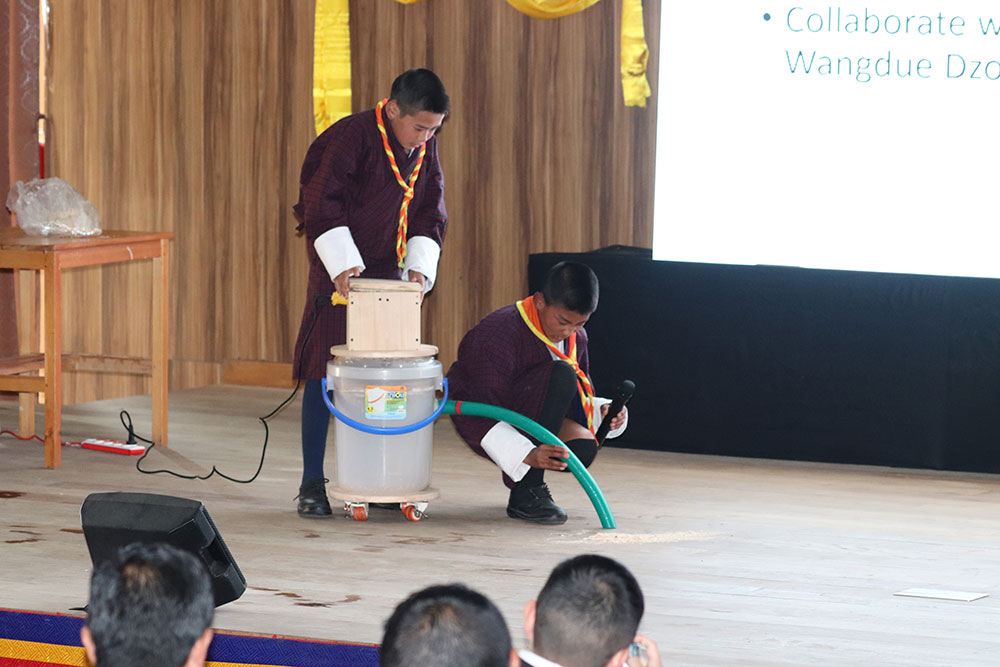Jigmi Wangdi
Four students of Khotokha Primary School were on the stage presenting their innovative model.
Made using everyday items, the functions of the device, Eco-Dust Collector, resembled a vacuum cleaner.
Sangay Khandu, Kezang Nima, Tenzin Pelki Thinley, and Dorji Tshomo Yekher along with their 61 friends, came up with this idea to get rid of dust in their classrooms that caused various health problems.
The students made six collectors in three months, each a better version of the last.
“Our model is made using recycled waste and is by far cheaper compared with similar machines available in the market,” said one of the students.
The students participated in the Adolescent Skills and Employability (ASE) Bhutan Project, notably under the UPSHIFT programme. UPSHIFT supports adolescents and young people to identify problems in their communities and design solutions to tackle those problems.
The programme is aimed at providing students with 21st-century communication, problem-solving, decision-making, negotiation, team-building, and co-creating solutions skills to address social issues in communities.
Khotokha Primary School took home the first prize, Nu 120,000.
The winners of Category A, students from Wangsel Institute for the Deaf, had the Deaf Employment Hub (DEH) for the judges. The students pitched their idea using sign language. The translator conveyed to the audience that DEH was designed to help link job opportunities with people with deaf and hard of hearing (DHH) problems.
Tenzin Wangchuk, a student at Wangsel Institute, said that DEH has been able to help 21 deaf students from vocational institutes so far.
Some of the other ideas from students were cold storage to store perishable goods used for cooking in their school mess, recycling waste and reusable items to produce various products, and water harvesting system to maintain cleanliness in toilets.
Ministry of Education and Skills Development’s (MoESD) assistant programme officer, Chendra Norbu, said that the ASE is aimed at equipping students with 21st-century skills. “The process of engagement is more important than results.”
The ASE was launched last year to equip adolescents and young people with life skills that would empower them to seize opportunities, confront challenges, and access meaningful employment.
MoESD organised the project in collaboration with Bhutan Youth Development Fund, Loden Foundation, and UNICEF Bhutan.
Students demonstrate their eco-dust collector


